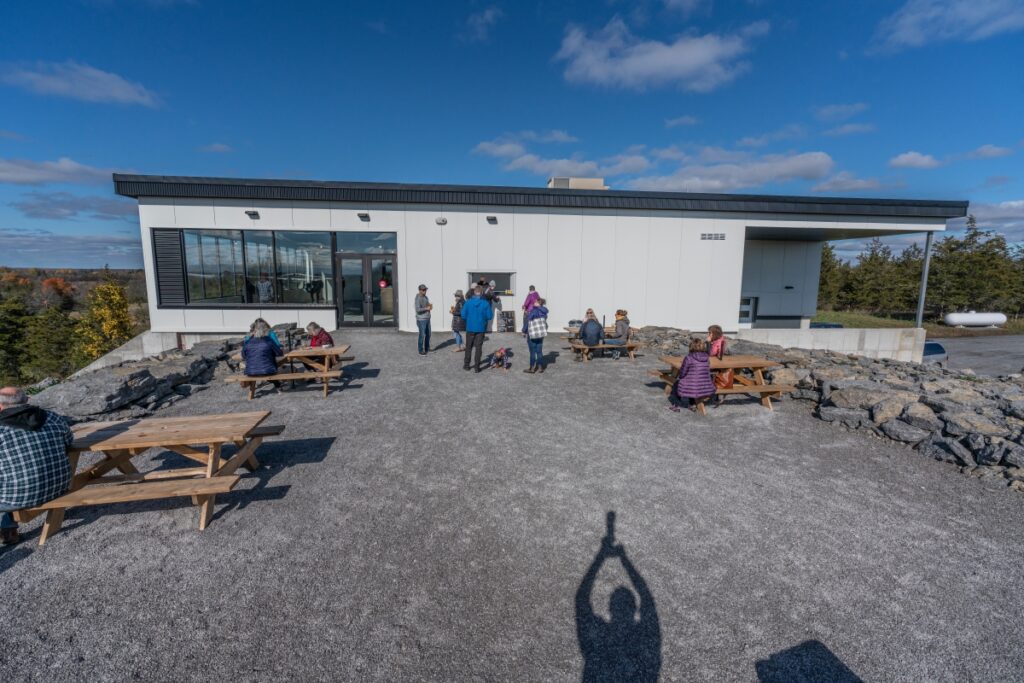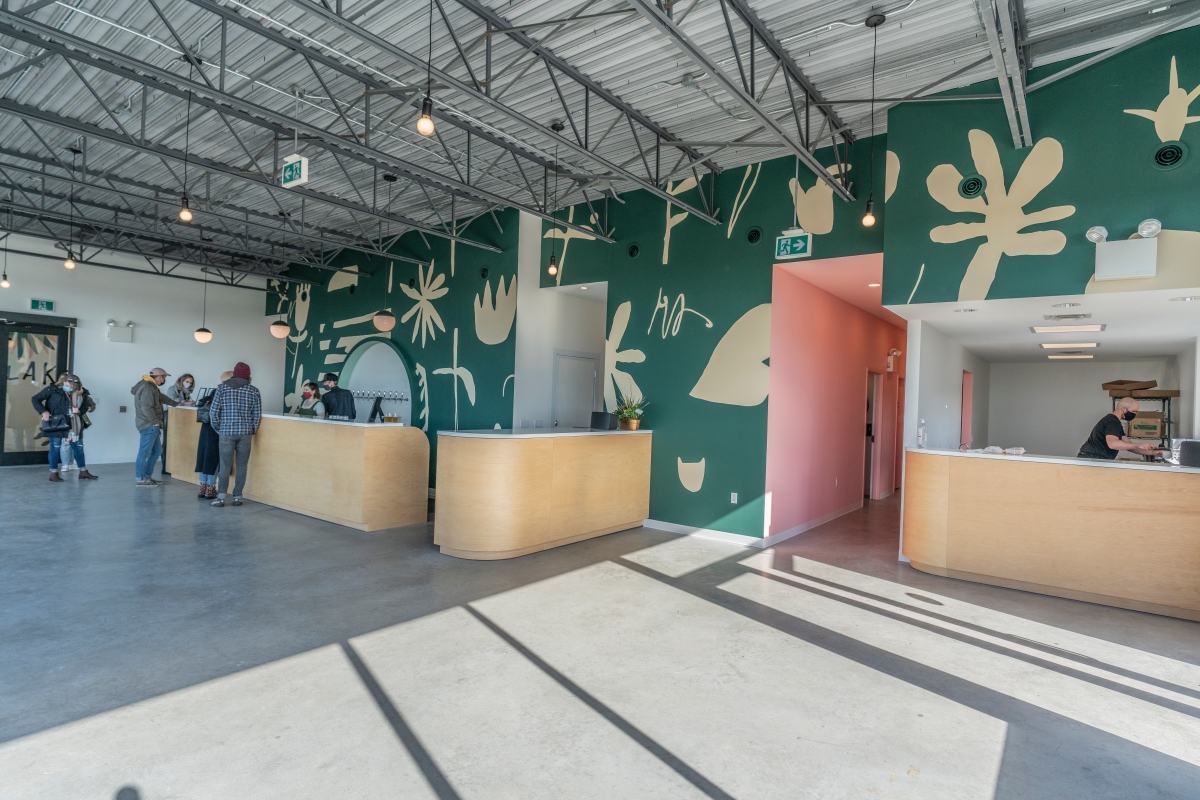
From the Archives… A spotlight on Slake Brewing Co. from the Fall 2020 Edition of Brewers Journal Canada.
When one door closes, another door opens. At a time more people are looking closer to home for a vacation, Prince Edward County has just experienced its busiest tourist season ever. And visitors to this beautiful part of Ontario now have a new place to enjoy great beer in the form of Slake Brewing.
The Guardian, a UK newspaper, published an article in November 2016 called Cool in Canada: Prince Edward County – Ontario’s great escape.
The publication said that it was only in recent years Prince Edward County had taken off, but those who had discovered the joys of this municipality in southern Ontario were sure to return, be it on a temporary or permanent basis.
It just so happens that its qualities have long since worked their charms on Eric Portelance, Greg Landucci and Nick Bobas, the trio behind Slake Brewing.
Sure, they would have liked to have been up and running earlier than now but delays out of their control meant the brewery has only just opened its doors.
And in this case, it is genuinely better late than never.
“Speaking with others in the industry, in a sense, I’m happy we weren’t open back then,” admits Portelance.
A number of contractor issues out of the team’s control put the Slake project on the back burner during last year, so a project that was due to be up-and-running in November 2019 moved into 2020.
And then the world turned upside down.
“We’ve opened. Not the way we expected, but I know lots of great breweries in this industry have had to understandably struggle with protocols, staffing and other issues,” he says. “There are a lot of burned-out brewery owners out there, that’s for sure.”
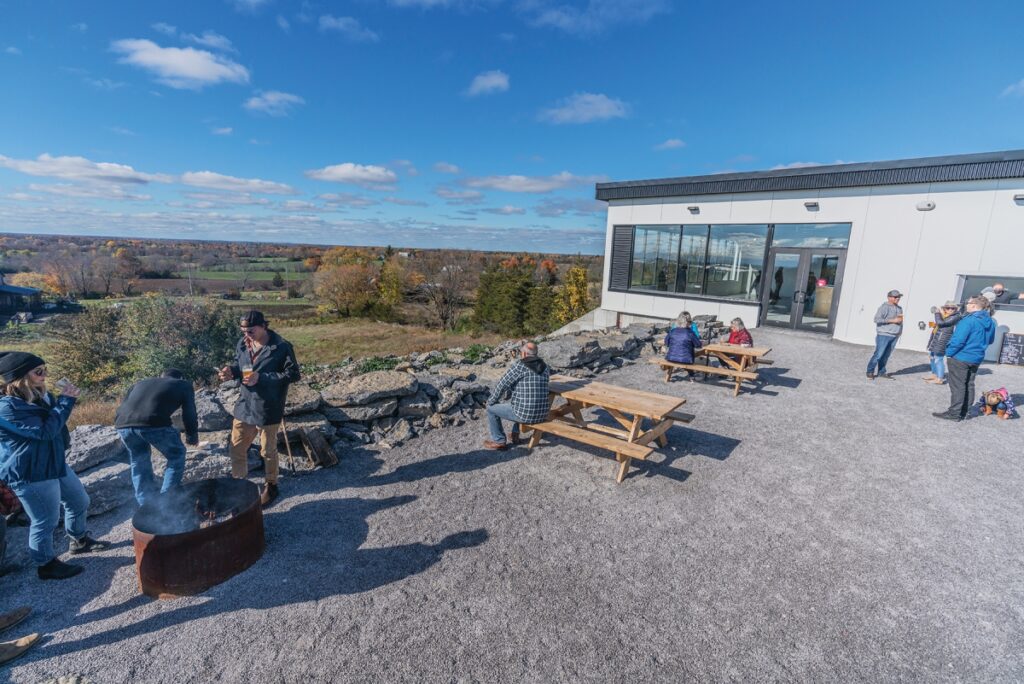
Slake Brewing is the brainchild of Portelance and Landucci, two former business partners of Halo Brewery, located on Wallace Ave, Toronto.
Portelance attributes the county’s beaches, parks and culinary experiences among the reasons behind its popularity.
“There was a resurgence here, regardless of the global situation,” he explains. “Combine that with a poorer Canadian dollar and COVID-19, people are naturally wanting to travel more internally.
“That sense of escapism doesn’t leave you. People want out of cities regardless, to get their sense of freedom so many have been lacking. I expect the season to be just as busy next year, if not more so.”
Portelance and the team have been given an encouraging idea of what 2021 might have to offer following a stunted annus horribilis for the industry and economy at large.
“These first few weeks in business have been so busy, so you could say it’s a really good test run, like preview of next season,” he says. “It allows us to work ahead and makes me realise it would have been more challenging opening earlier in the year.”
But let’s be clear… The Slake Brewing ethos, the mission statement they set out with, is the same as it was when the idea of starting this brewery came to be. And that’s to make honest, delicious beer, featuring local ingredients.
The timing was just different to how they planned, but the reception they’ve received has been a constant – and that’s positive.
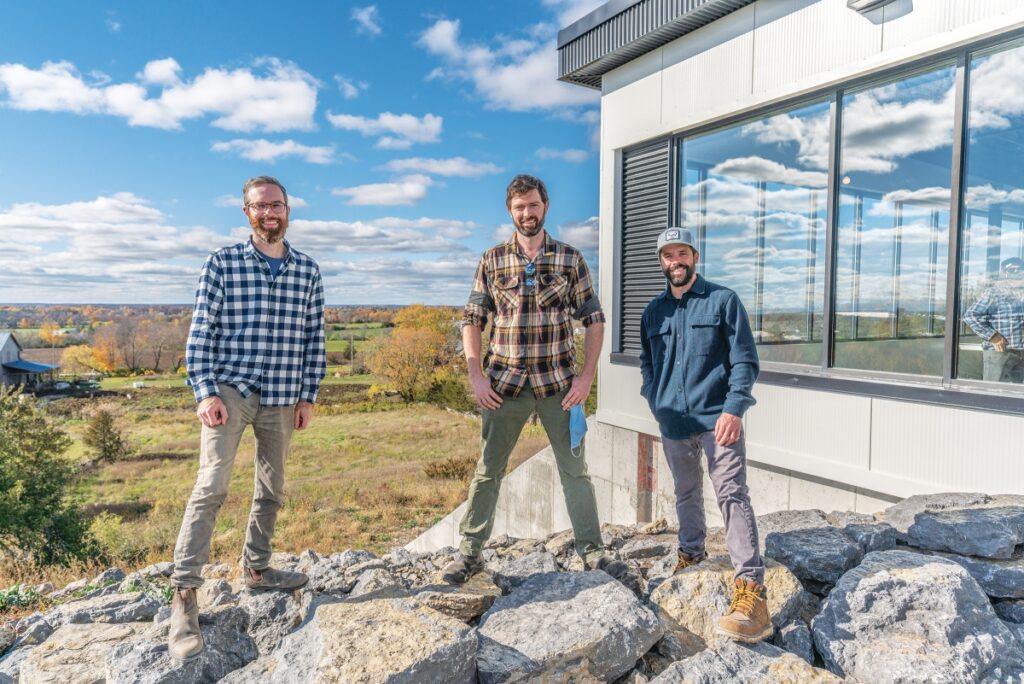
“For our customers, it’s something of a whole package. The location is undeniable. Sure, it’s not the most ideal place to build a brewery but it’s special for us and we knew making our lives more difficult to improve the consumer experience would be worth it,” says Portelance.
While the location is, of course, a draw. Slake would be making new fans regardless of where their beers are consumed.
He adds: “We’re grateful that the beers we make have been very well received. Ultimately, they’re proving to be the types of beers we set out to make without telling people.
“That’s to produce beers that are sessionable, delicate and balanced. They often have a low ABV and are not aggressive, which I think is a product of our brewing experience. We’re not striving to make Double IPAs. Plenty of breweries make them, and they make them well but as fellow producers, they’re not our focus.”
These early beers include the 4.6% Super Sunset Pale Ale, Tasty Farmhouse Ale, coming in at 5% Hatch Pale Ale (5.2% ABV), and Yellow Flowers Table Beer, with an approachable ABV of 3.5%. “
For us, it’s about making something authentic, these styles are a natural fit for this place,” muses Portelance. “We offer people somewhere to relax, unwind and forget their day-to-day lives.
“Look at some of the older European beer cultures in the Czech Republic and Germany. Beer is there for enjoyment, to relax and socialise over.
“Sure, we’ve made those aggressive beers, high ABV, hoppy ones. They are great and they are delicious. And yes, they review well – but for me, it doesn’t make sense to have smoothie IPAs. We will leave that to others.”
“That sense of escapism doesn’t leave you. People want out of cities regardless, to get their sense of freedom so many have been lacking,” Eric Porterlance, Slake Brewing.
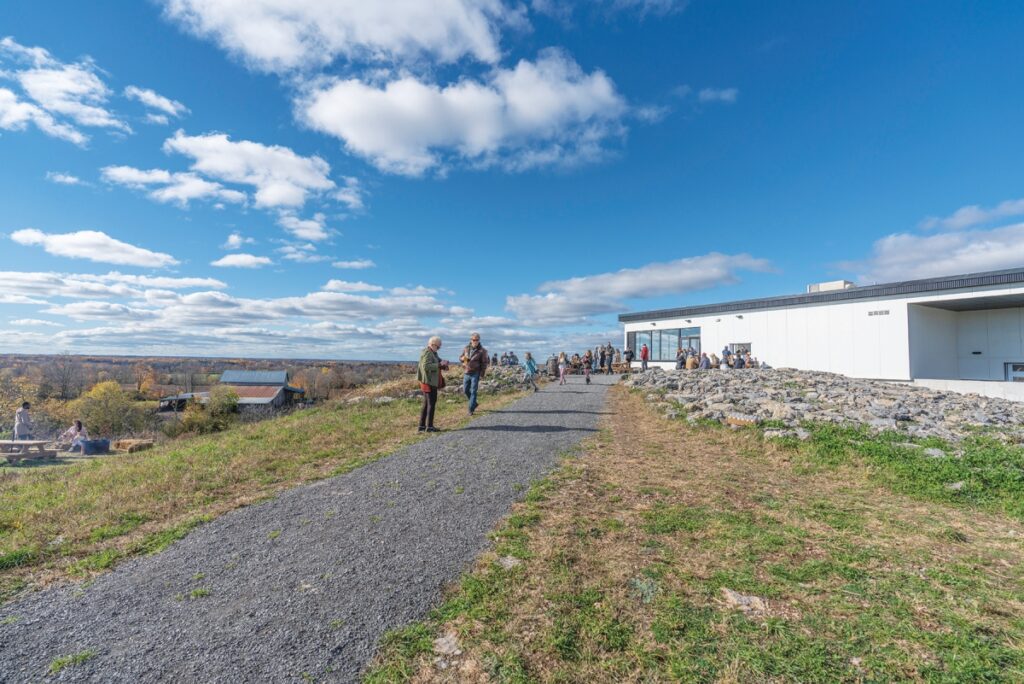
Slake Brewing is located on farmland owned by Landucci, his and Portelance’ spouse are cousins.
Landucci’s family were raising pigs on their land, using the spent grains from Barley Days Brewery for pig feed. But fast-forward, and with Portelance at Toronto’s Halo Brewery, the opportunity for Landucci to become involved proved too much.
“He couldn’t say no,” laughs Portelance. “Greg partnered with me at Halo, driving to Toronto, sleeping on coaches and working long, long days. It was a challenging time and when he was in town, it was full-on. He has an undeniable great work ethic.”
But when the duo would eventually sell their shares in Halo Brewery back in early 2018, they would travel to places such as Austin and Nashville to experience other beer and brewing cultures.
Elsewhere, Nick Bobas was known to Portelance et al since they went professional. Managing the barrel ageing programme at Toronto’s Indie Ale House, Portelance respected both Bobas’ opinions and expertise on all things beer.
He would also want to move to Prince Edward County at a time the duo were plotting Slake, meaning the planets would align.
“It worked out,” he recalls. “Greg and I were brewers but not as talented as Nick! We wanted to hire someone better than us, and with someone as talented as Nick, we got that.”
He adds: “Emotional aptitude and a lack of ego can overcome even technical shortcomings in business. If you’re all striving for the best then that’s ok. You can’t be too sensitive.”
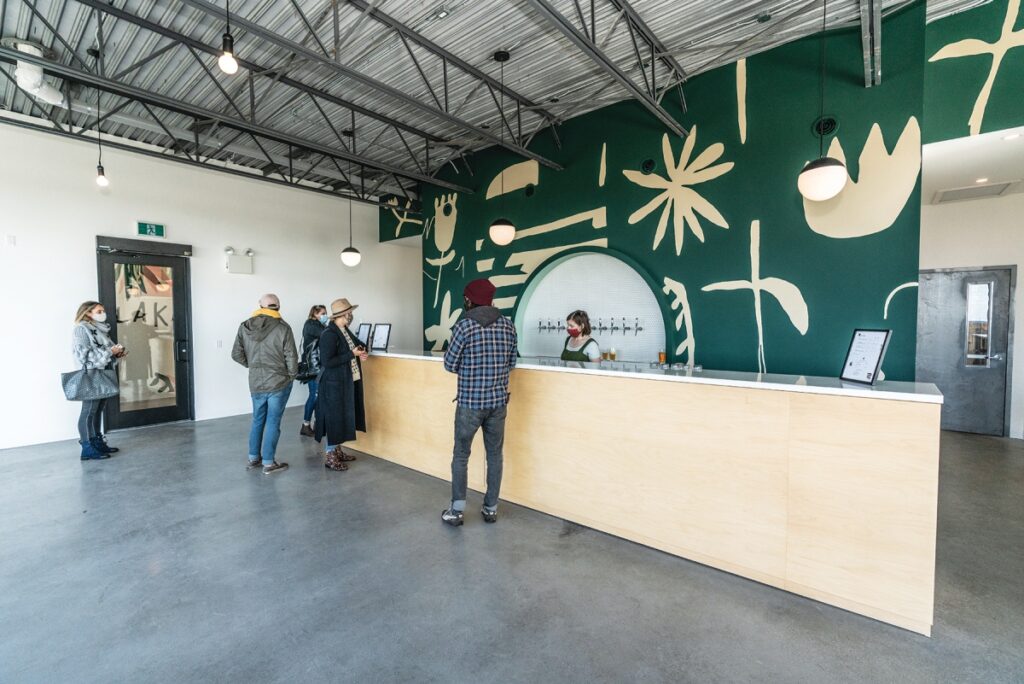
This rang especially true in those formative months building Slake Brewing. Key issues such as wastewater systems that had been incorrectly installed along with windows poorly fitted, meant that the team had to put a hold on their grand plans.
But they got there. While best-laid plans meant barrels, destined for cellaring, were eagerly awaiting filling in January of this year, that process didn’t happen till late summer.
Though good things come to those that wait…
“We set out with two sides to this business, to offer fresh beer such as pale ales and lagers, but also barrel-aged creations. And let’s be honest, the barrel side is more fun!” laughs Porterlance. “It allows us to play around with locally-grown fruit such as peaches and plums to help create beers that are complex and nuanced but also accessibly with a balanced acidity. Like our fresh beers, these are designed to destroy your palate.”
“We strive for balance in everything we do,” he adds.
“We set out with two sides to this business, to offer fresh beer such as pale ales and lagers, but also barrel-aged creations,” Eric Porterlance, Slake Brewing.
These beers will rest in Slake’s underground cellar for periods between six to eight months to two years, depending on the beer. As Porterlance explains, “the barrels all tell us when they’re ready”.
Slake Brewing’s beers are produced on their three vessel 15bbl/17HL brewhouse. It features a separate lauter, kettle whirlpool and has been modified to allow for decoction mashes.
Beers are made using exclusively 100% Ontario malt, floor malted only a 30 minute drive from the brewery’s location. Oats and Rye are sourced from Canada, too.
“Sure, working with small producers can be challenging and we sweat a bit when stocks are low, but it’s worth it, and lowers our carbon footprint, too,” he explains.
Working with malt on this scale also presents another type of challenge. “It’s not like buying the same spec malt from a bigger producer, there’s a learning curve involved but it’s what we wanted,” Porterlance says.
“That’s why we wanted the ability to run decoction mashes, working with less modified grain. The chance to decoction mash, as well as run turbid mashes is exciting.
Slake has started out with the trio of Portelance, Landucci and Bobas. They enlisted a team of family and friends to help with the front of house upon opening at the end of the summer season and every expectation has so far been surpassed.
“I’m a bit of a pessimist, the type of person that will throw a party then worry if anyone will turn up,” he says.
Thankfully for Slake Brewing, and Prince Edward County, there’s no risk of that happening any time soon.
SOURCE: Brewers Journal Canada | FALL 2020 Edition
PHOTO CREDIT: Jakub Mulik for Brewers Journal Canada
